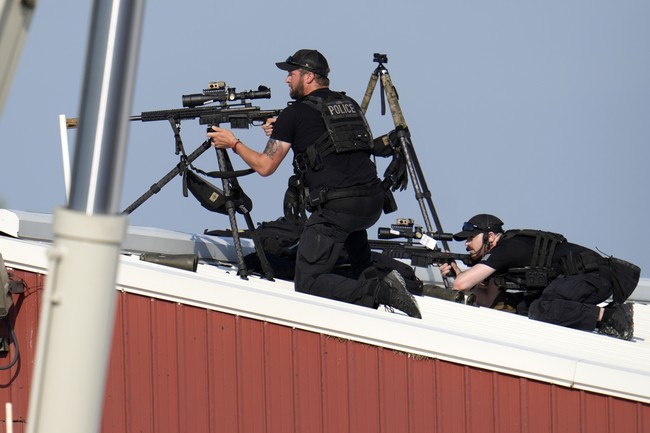
On July 13, it will be exactly a year since Thomas Matthew Crooks took aim at then-presidential candidate Donald Trump at a Butler, Pennsylvania, campaign rally in a scene that shocked the world. You probably know where you were the moment you found out (or watched live on TV) that Trump missed death by mere millimeters and was struck in the ear. Tragically, firefighter Corey Comperatore was killed in the barrage of bullets.
But why did Crooks do it? Were there signs, did he leave a manifesto, was he posting enraged missives on social media?
No—mostly he just left behind unanswered questions. As Breitbart reported Friday, CBS News recently conducted an investigation into the would-be assassin’s motive, but came up with very little:
[The] mystery prevailed even in an extensive CBS’s report this week, which the network described as the “most comprehensive portrait” of Crooks to date — based on interviews “with more than two dozen friends, professors, law enforcement officials and others, as well as open records requests to half a dozen agencies and a review of thousands of documents.”
The takeaway? A whole lot of nothing:
He left no manifesto, no explanation for why he tried to kill the former and future president. In the year since the shooting, investigators and those who knew him have been trying to piece together what led him to climb that roof in Butler, with frustratingly few answers.
SEE MORE: Here’s What We’ve Learned About Those Multiple Suspended Secret Service Agents
It was a moment that permanently changed the man who would go on to become president again:
Former Secret Service agent and special agent with Homeland Security Charles Marino told Fox News that the FBI and the Service have found no evidence of Crooks being directed by outside forces:
“I think the way this conspiracy talk originated was upon the discovery of the multiple [numbers] on his phone. And so that raised some curiosity about possible international interactions,” he said. “I can tell you that all of that was investigated. I’m not certain of all of the outcomes.”
“As far as the conspiracies, I know right now it just seems like a total failure to mitigate what was a single threat,” he added.
Former FBI agent John Nantz, meanwhile, said Crooks didn’t fit the profile of a politically motivated zealot who yearned to spill blood over ideology:
“Crooks looked not so much like an ideologue, not so much like an individual who was being directed in some way to conduct an assassination attempt, but more like a person with anti-social issues that may have been seeking notoriety,” Nantz told Fox News Digital.
While investigators have not identified a definitive ideological or political motivation, the FBI has suggested a complex interplay of personal grievances, mental health issues and a desire for notoriety to lead to the attack.
And so it is that we are left with another enduring American mystery. We know that Crooks was antisocial, but was apparently smart and was working toward an engineering degree, had few friends, and was just generally a weirdo. He bewilderingly donated to Democrats but was a registered Republican.
What nobody has yet ascertained is what caused him to snap and decide to go on a suicide mission to become an almost-assassin instead of an engineer. The public is hungry for answers on a story that changed history (and could have changed it much more dramatically if he had succeeded in his plot).
Almost a year later, we still don’t have those answers.
















